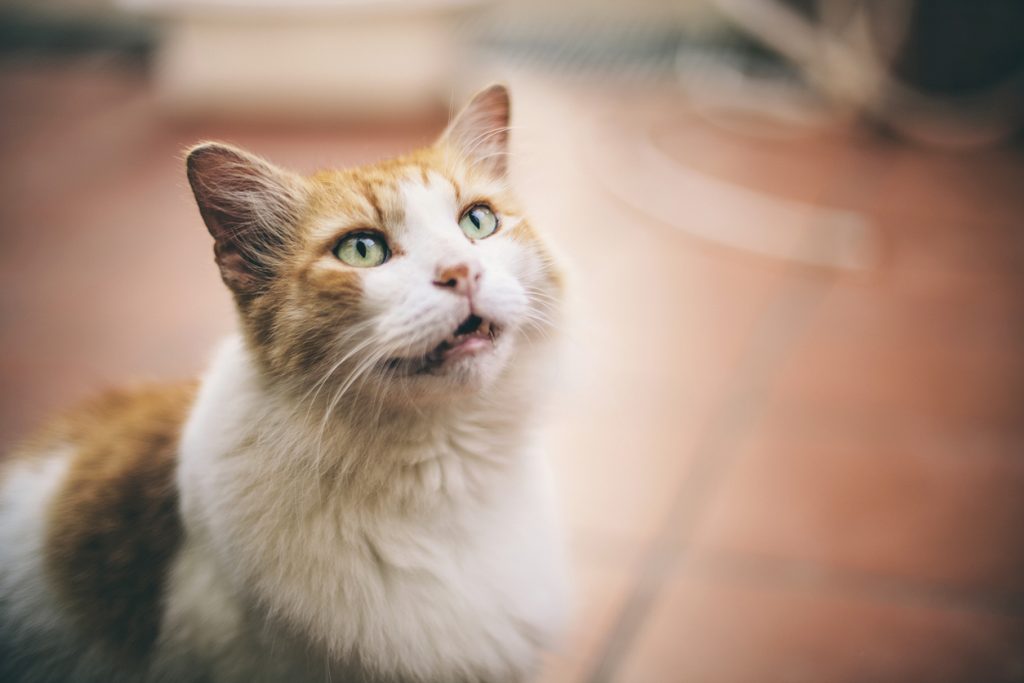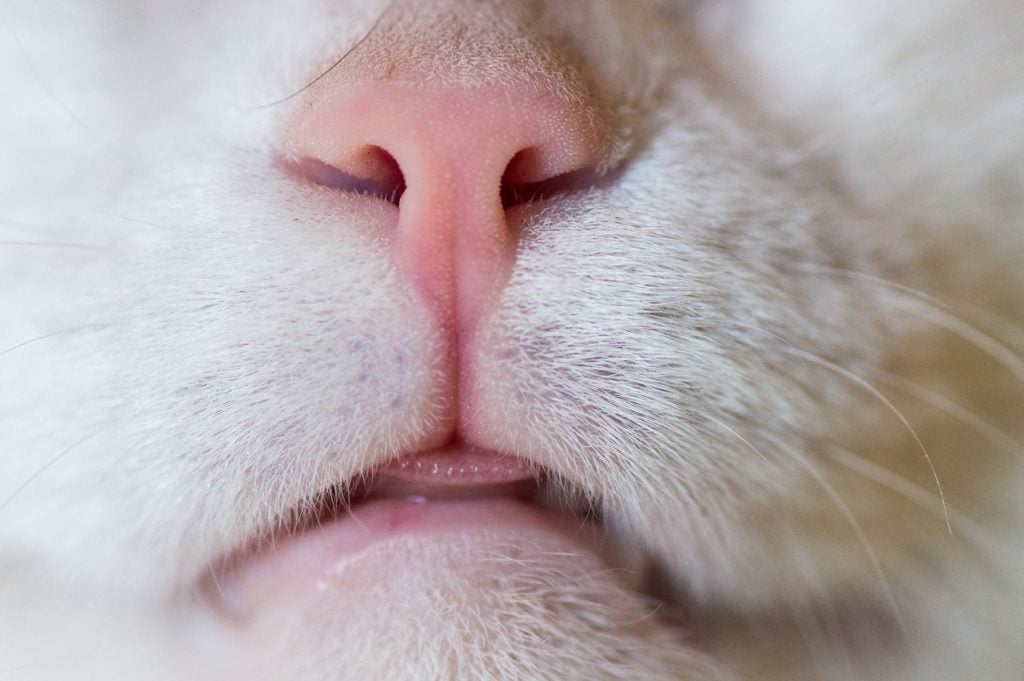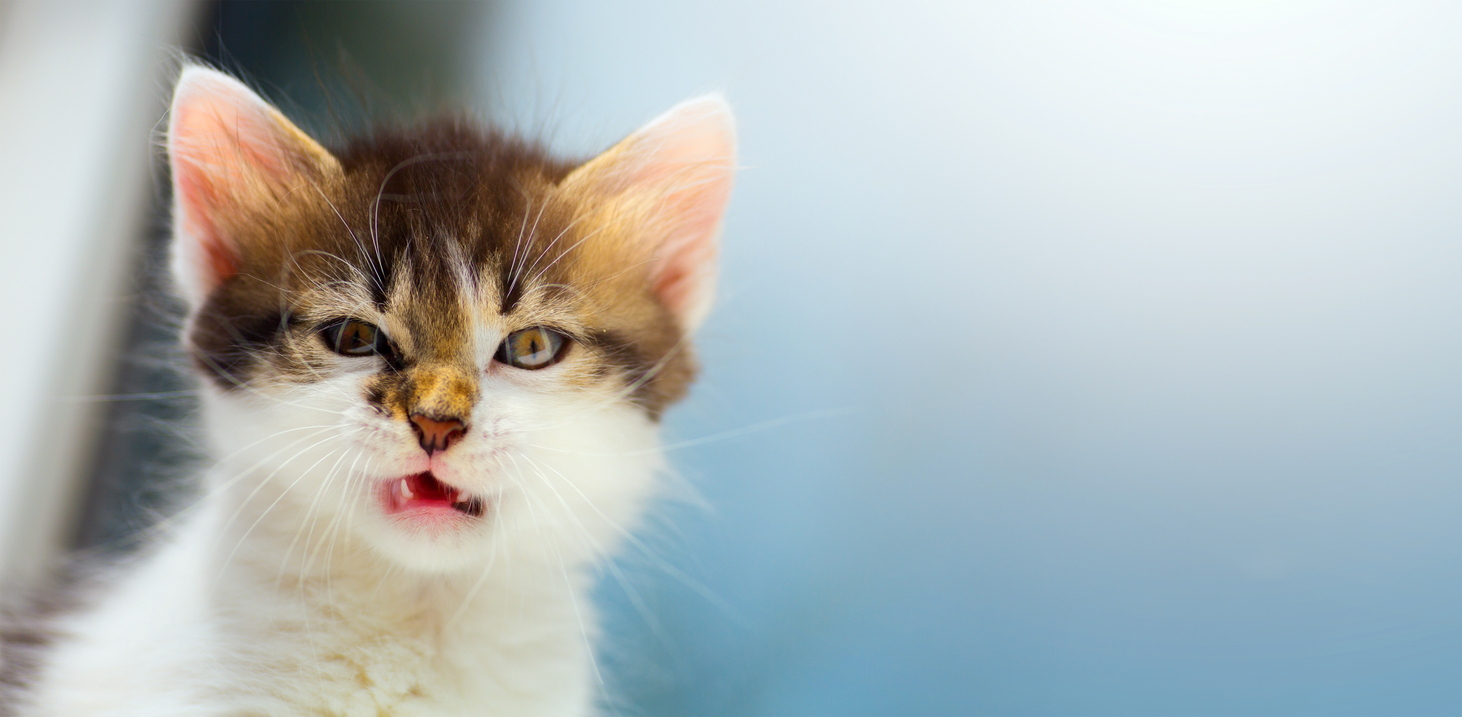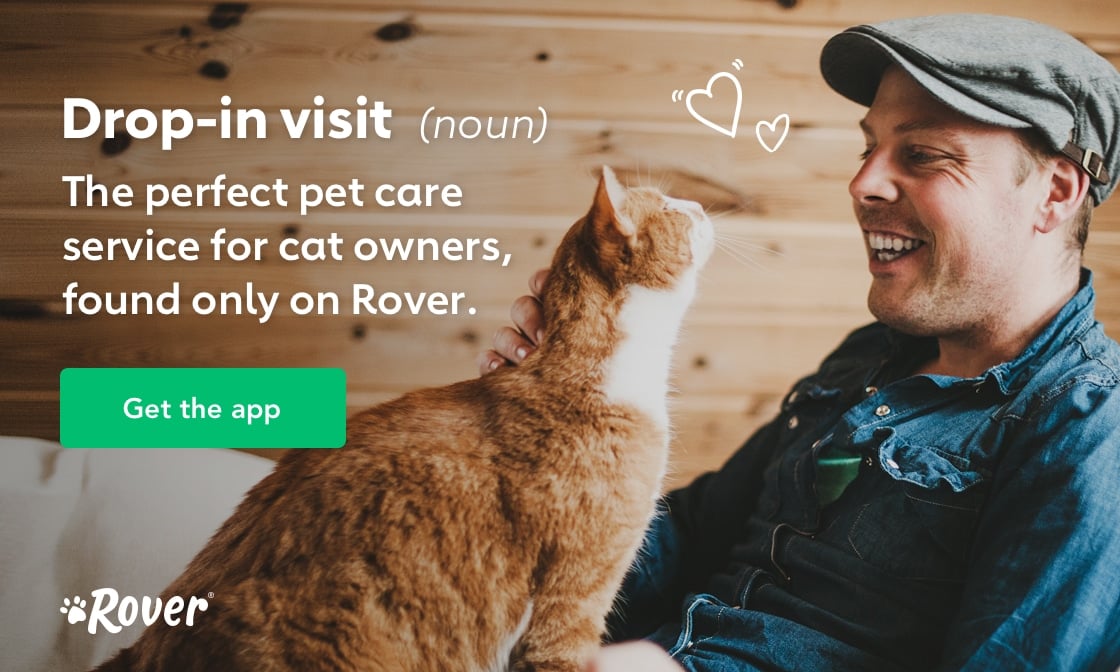- Not a substitute for professional veterinary help.
When cats really want to know what’s going on around them, they use their powerful sense of smell. And they do much more than just casually sniffing at things. You’ll see them draw back their lips, wrinkle their muzzles, open their mouths, and suck in air with a soft “huffing” sound. You’ve probably wondered, why do cats open their mouths when they smell? Should I worry about my cat making these strange faces?
The Flehmen Response
It turns out our cats aren’t the only animals that open their mouths to enhance their ability to smell. This strange behavior, called “the flehman response,” is seen in a wide range of mammals. (But not in humans.) All of these animals (with the exception of horses) have special scent receptors on the roofs of their mouths as well as in their noses.
In the 1600s, Dutch anatomist Frederick Ruysch did some of the earliest research on the vomeronasal organ (it’s also known as a Jacobson’s organ) where these scent receptors are located. Ruysch even described the open-mouth breathing animals used to bring scents to the receptors. But it wasn’t until the 1930s that the director of a German zoo gave this open-mouthed smelling the name “flehmen response.” This comes from the German word “flehmen,” when means “to bare the upper teeth.”
There are several names for this exaggerated, open-mouthed sniffing. It’s also called “gaping,” “grimacing,” and “sneering.” Cats can look annoyed and aggressive when they’re engaged in this sort of smelling—even though they’re probably just preoccupied.

Begging cat portrait.
“Although the classic ‘stinkface’ looks a little menacing, it’s not meant to be,” says Dr. Rebecca Greenstein, a veterinarian who sits on The Dog People Panel at Rover. She’s Chief Veterinarian and practice owner at the award-winning Kleinburg Veterinary Hospital in Ontario, Canada.
So why do cats open their mouths when they smell? Dr. Greenstein says that numerous animals including cats, horses, elephants, and even pandas, will make this snarl-like gesture in response to certain scents that warrant extra-special attention from a sniffing point of view.
“The funny look cat parents often see is actually quite purposeful, and not at all aggressive,” Dr. Greenstein says. “The lip curl allows the transmission of certain scent hormones called pheromones into the mouth. It’s sort of like smelling and tasting a scent simultaneously.”
How Well Do Cats Smell?

Really, really well. Compared to the 5 million or so olfactory receptors in a human nose, a cat has as many as 200 million olfactory receptors. And while cats have fewer sensors than dogs, Dr. Carly Patterson at Texas A&M College of Veterinary Medicine & Biomedical Sciences reports that cats may be better able to differentiate between different smells.
In an interview with Slate, anthrozoologist John Bradshaw, author of Cat Sense: How the New Feline Science Can Make You a Better Friend to Your Pet, describes cats as having a “high resolution” sense of smell. So while the rest of us are looking at a blurry picture (“Hmmm, smells like an animal was in here!”) your cat can probably tell what type of animal it was and if it’s a dangerous predator, potential prey, a possible sexual partner or competitor—or the family Labradoodle.
According to Catnip, the newsletter of the Cummings School of Veterinary Medicine at Tufts University, “While people can stop and smell the roses, cats can stop and smell the people who stopped to smell the roses—long after the people have walked away.”
If you want to see a cat give the flehmen response, try bringing a male cat into a room where a strange male cat has been (or, better yet, where a strange male cat has sprayed). In her book Why Do Cats Do That? Catherine Davidson describes the whole process, explaining that flehmening can take quite a bit of time and may involve staring into space as if conducting a complex analysis.
“Cat spray contains a great deal of information,” Davidson points out.
What Do Cats Do When They Smell Something Bad?
While humans might make a face that resembles the feline flehmen response when they get a whiff of something really stinky, a cat’s flehmen response has nothing to do with a smell being pleasant or nasty. For a cat, what counts is how interesting the smell is.
“When your cat makes that weird ‘sneer’ after sniffing something particularly intriguing to them, they’re essentially closely analyzing a particular smell to glean as much olfactory info as possible,” Dr. Greenstein says.
In fact, if something smells foul to a cat, they’ll just leave quickly. That’s the principle behind anti-scratch sprays and other feline repellents. Keep in mind that things that smell absolutely awful to humans (cat pee! decaying fish! other cat’s hind ends!) may be utterly fascinating to your cat. And a number of smells that most humans find delightful (such as citrus, cinnamon, and ripe bananas) are a real turn-off for kitties. (Tufts’ Catnip newsletter has a full list.)


4 Comments